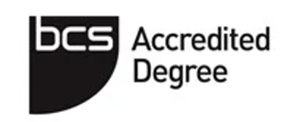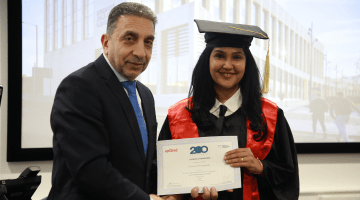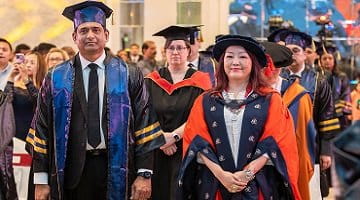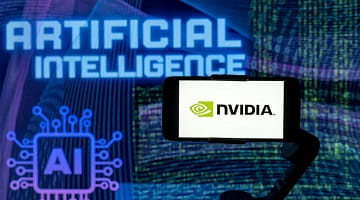Why study this course with LJMU?
- Links with over 450 local and national organisations, including Merseyside Police, Cheshire Police, EY, Experian, IBM, Eutechnyx and Intaforensics
- Opportunity to undertake a year's paid industrial placement
- Vocational course in Computing
- Combines Theory and Practice
- Covers Contemporary Topics in Computing
- State-of-the-art computing facilities with specialist computer forensics software
- Exciting career prospects
- International Foundation Year course available offering direct progression onto this degree programme - visit LJMU's International Study Centre to find out more
About your course
This is a practical alternative to Computer Science and Software Engineering with a less theoretical, more vocational approach to the subject. The course covers contemporary topics within the field of Computing and allows students to develop sound practical skills as well as acquiring theoretical knowledge.
The course provides a good general purpose first degree in Computer Science and allows students to explore the subject and determine which specialization suits them best.
The course covers core subjects, such as Programming, Software Development, Information Systems Development and Systems Analysis and Design.
The core subjects provide the "backbone" to the programme and these are complemented by the three main themes, which are:
- Web Development
- Computer Networks
- Data Analytics
Students will study the core subjects and the three main themes at an introductory level during the first and second year. In the final year they will choose options based on the theme that best suits them
Course modules
What you will study on this degree
This course is currently undergoing its scheduled programme review, which may impact the advertised modules. Programme review is a standard part of the University’s approach to quality assurance and enhancement, enabling us to ensure that our courses remain up to date and maintain their high standard and relevancy.
Once the review is completed, this course website page will be updated to reflect any approved changes to the advertised course. These approved changes will also be communicated to those who apply for the course to ensure they wish to proceed with their application.
Further guidance on modules
Modules are designated core or optional in accordance with professional body requirements, as applicable, and LJMU’s Academic Framework Regulations. Whilst you are required to study core modules, optional modules provide you with an element of choice. Their availability may vary and will be subject to meeting minimum student numbers.
Where changes to modules are necessary these will be communicated as appropriate.
Core modules
Core modules
Core modules
Optional modules
Core modules
Optional modules
Professional accreditation
Accredited by BCS, The Chartered Institute for IT for the purposes of fully meeting the academic requirement for registration as a Chartered IT Professional.

Your Learning Experience
Excellent facilities and learning resources
We adopt an active blended learning approach, meaning you will experience a combination of face-to-face and online learning during your time at LJMU. This enables you to experience a rich and diverse learning experience and engage fully with your studies. Our approach ensures that you can easily access support from your personal tutor, either by meeting them on-campus or via a video call to suit your needs.
Students are taught using a combination of lectures, tutorials, online activities and labs. Typically, teaching is in 3 hour blocks and it include a 1 hour lecture followed by 2 hours of lab activities. Students at level 4 and level 5 typically undertake approx. 15 hours of contact teaching per week. Students in the final year (level 6) have less contact hours per week, but more independent study.
Work-related Learning
Placement year is undertaken at the end of the second year of study. The placement provides invaluable experience within the subject field. Students who do no secure a placement go through directly to the final year. All students graduate with the same degree, whether or not they complete a placement year.
Work related learning is woven into a number of modules on the course.
Dedicated personal tutor, plus study skills support
All students are assigned a personal tutor at the start of the course. The personal tutor stays with the students as they progress through the different years of the course. Personal tutors can provide academic support as well as pastoral care and help with wellbeing.
Assessment varies depending on the modules you choose, but will usually include a combination of exams and coursework.
Students are assessed predominantly through coursework, although there are several exams for the more technical subjects. The ratio of coursework to exams is approximately 75:25. Most modules typically have two assessment components, which are either two courseworks or one coursework and an exam. Very few modules are assessed solely through exam.
Where you will study
This programme is delivered in the Byrom Street complex of LJMU's City Campus. Here you'll find high quality lecture theatres, meeting and seminar rooms plus social spaces and a large café. The Avril Robarts Library is just minutes away on Tithebarn Street.
Tuition fees and funding
- Full-time per year:
- £9,535
- Placement year:
- £1,905
Fees
The fees quoted above cover registration, tuition, supervision, assessment and examinations as well as library membership and student IT support with access to printed, multimedia and digital resources including programme-appropriate software and on campus Wi-Fi.
Financial Support
The University offers a range of scholarships to support students through their studies. You'll find all the information you need on our specialist funding pages, including details of the Student Support Fund and other activities to support with the cost of living.
Additional Costs
In addition to fees, students should also keep in mind the cost of:
- Accommodation
- Travel costs including those for placements, visas and travel for studying abroad and field trips unless paid for by LJMU
- Stationery, IT equipment, professional body membership and graduation gown hire
The University reserves the right to increase tuition fees in accordance with any changes to the maximum allowable fees set by the UK Parliament. In the event of such a change, any fee increase will be subject to a maximum cap of 10% of the total course cost as originally stated at the time of your offer.
Entry requirements
Please choose your qualifications below to view requirements
Grades/points required from qualifications: CCD-CCC (88-96)
Work out how many UCAS points your qualifications are worth by visiting the UCAS Tariff Calculator.
Qualification requirements
How to apply
Securing your place at LJMU
UCAS is the official application route for our full-time undergraduate courses. Further information on the UCAS application process can be found here https://www.ljmu.ac.uk/study/undergraduate-students/how-to-apply.
Your university life
From accommodation and academic support to clubs and societies. Find out what LJMU has to offer.
Related Links
Talk to our students
Connect with a current LJMU student for advice and guidance on university life, courses and more.
See what our students are saying
At LJMU we want you to know you're making the right choice by studying with us. You can see what our students are saying about their experience with us through their reviews on the following websites:
Related Links
News and views
Browse through the latest news and stories from the university
The university reserves the right to withdraw or make alterations to a course and facilities if necessary; this may be because such changes are deemed to be beneficial to students, are minor in nature and unlikely to impact negatively upon students or become necessary due to circumstances beyond the control of the university. Where this does happen, the university operates a policy of consultation, advice and support to all enrolled students affected by the proposed change to their course or module.
Further information on the terms and conditions of any offer made, our admissions policy and the complaints and appeals process.




























